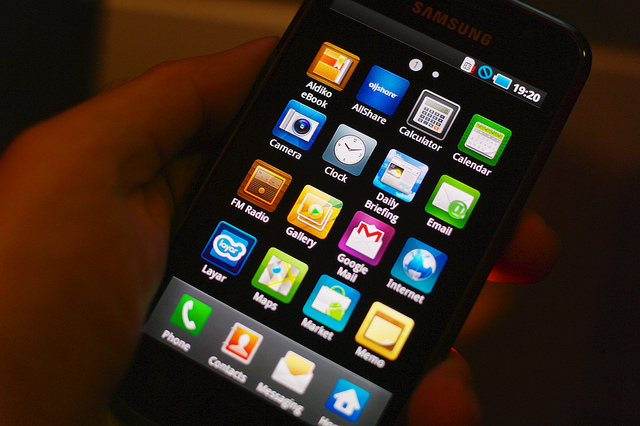
Apple today accused Samsung of demanding too much money for infringement of patents pledged to industry standards, and argued that Samsung violated European guidelines by not disclosing the patents to a standards body quickly enough.
As we reported yesterday, Samsung’s legal counterattack against Apple’s patent infringement claims include a demand for up to $399 million for Apple’s alleged violation of Samsung patents related to the UMTS 3G standard. The demand is based on a royalty of between 2 percent and 2.75 percent per device.
Today, Apple called witnesses who testified that Samsung’s royalty demands are unreasonable for patents deemed essential to industry standards, and that Samsung did not fully comply with the standards process. As background, when companies like Samsung submit patents to be used as part of industry standards, they agree to license those patents to competitors at fair, reasonable, and non-discriminatory (FRAND) rates. But there is no generally accepted definition of fair and reasonable rates.
Samsung asserts that Apple violated five Samsung patents. Three of them cover user interface components. The other two, which carry FRAND obligations, are #7,447,516, covering a "Method and apparatus for data transmission in a mobile telecommunication system supporting enhanced uplink service" and #7,675,941, covering a "Method and apparatus for transmitting/receiving packet data using pre-defined length indicator in a mobile communication system."
Apple witness Richard Donaldson, the lead patent attorney for Texas Instruments before he retired, testified that Samsung’s demands aren’t fair. "If other companies were to determine that this is a reasonable royalty, then the total royalty on the iPhone would be something like 50 percent," Donaldson testified, according to a story by Reuters.
Apple also argued that Samsung didn’t follow the proper process in getting its patents into industry standards. Testifying on Apple’s behalf was Michael Walker, former chairman of the European Telecommunications Standards Institute. According to a report by CNET, Walker "found that [Samsung] had not disclosed the necessary priority paperwork until years after work had begun on a particular standard."
Samsung responded by claiming that the disclosures would have revealed confidential information.
Prototype tablet rises from the dead
In another development today, Apple was rebuffed in its attempt to block Samsung evidence related to a prototype tablet developed by an independent researcher in 1994. At stake was whether Samsung could show the jury a tablet concept demonstrated in 1994 by one Roger Fidler, a Knight-Ridder executive who came up with the idea of a "tablet newspaper."
Videotaped testimony by Fidler was shown to the jury Wednesday, demonstrating that Apple was aware of Fidler’s research, Bloomberg reported. Samsung believes this prior art invalidates Apple’s claim over the design of the iPad, but Apple wanted to exclude evidence related to the tablet from the trial. US District Court Judge Lucy Koh ruled against Apple.
"That issue should go to the jury," Koh said today, according to a Bloomberg Businessweek report.
As a result, the jury was shown a replica of the Fidler tablet mock-up.
Testimony in Apple v. Samsung is wrapping up today. Next week, the sides will make closing arguments and the case will be sent to the jury. In the meantime, enjoy our pictorial overviews of Apple’s case and Samsung’s case.
reader comments
103